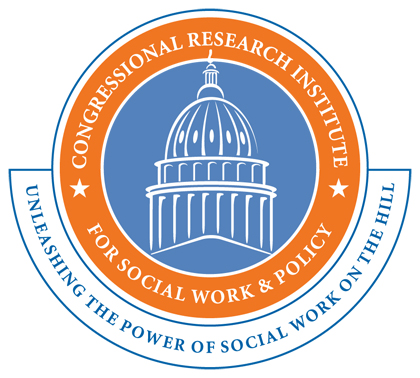Consumers finally caught a break this week when the Republican leadership in the Senate relented and permitted a vote on Richard Cordray’s nomination as the director of the newly created Consumer Financial Protection  Board (CFPB). Twelve Republicans joined the Democratic majority for a 66-34 vote confirming Cordray as the bureau’s first official director. Two years had passed since President Barack Obama submitted his nomination to the Senate for its approval. It’s finally full steam ahead for the CFPB whose number one goal is to protect consumers from unscrupulous financial actors and promote the practices that benefit us.
Board (CFPB). Twelve Republicans joined the Democratic majority for a 66-34 vote confirming Cordray as the bureau’s first official director. Two years had passed since President Barack Obama submitted his nomination to the Senate for its approval. It’s finally full steam ahead for the CFPB whose number one goal is to protect consumers from unscrupulous financial actors and promote the practices that benefit us.
The Consumer Financial Protection Board was created under Title X of the Dodd–Frank Wall Street Reform and Consumer Protection Act (P.L. 111-203). Republicans are generally opposed to federal regulations on corporations and financial institutions believing government interference in the marketplace hinders economic growth. They are particularly riled by the CFPB because the law shelters the agency from political manipulation by funding it through the Federal Reserve rather than through congressional appropriations. Republican also believed too much power has been given to a single director and want him replaced by a bipartisan panel.
Led by Sen. Richard Shelby of Alabama, Republicans vowed to block Cordray’s confirmation as a means of circumventing the law. They threatened to use the filibuster to keep Cordray bottled up and render the CFPB inoperable. Democrats responded—finally—by threatening to change the rules to allow confirmation by a simple majority arguing that the filibuster was never intended to be used to sidestep federal laws. Opting to avoid the so-called “nuclear option”, Republicans agreed not to use the filibuster to block President Obama’s nominations.
It is difficult to believe that Congress has done something that benefits ordinary people. These occurrences are few and far between. The power of monied interests has been dominant on the Hill. Social workers must now get up to speed on the new consumer protection board so that we may educate the people we serve and the general public on how they can use the CFPB to protect themselves from overzealous debt collectors, ruthless payday lenders, and unethical mortgage lenders.
This is how it works. Anyone who believes he or she has been unfairly treated during a financial transaction may submit a complaint to the CFPB. Once the complaint is submitted, the CFPB will contact the company to get a response from them. Once the company has responded, the complainant will have an opportunity to review their response and offer a response of their own. The CFPB will then share the information with the responsible state and federal agencies.
According to Cordray, the CFPB will help to level the playing field. Federal laws such as the Class Action Fairness Act of 2005 (P.L. 109-2) signed into law by President George W. Bush in February 2005 and The Bankruptcy Abuse Prevention and Consumer Protection Act (BAPCPA) (P.L. 109-8) signed by Bush on April 20, 2005, made it tougher for individuals to use class action suits against corporations or use bankruptcy to deal with debts. The business lobby hailed these two pieces of legislation as their most significant accomplishments.
The banking and mortgage industries were accused of using all sorts of nefarious practices leading up to the housing bubble and market crash in 2007 which caused the Great Recession from which we are still trying to recover. Millions of Americans lost their homes through foreclosures and their retirement funds. These unseeming practices led to the passage of the Dodd-Frank legislation and the creation of the Consumer Financial Protection Board—a great policy victory for average Americans. Social workers have an opportunity—and an obligation—to maximize the impact of this policy.
Written by Dr. Charles E. Lewis Jr.
President of The Congressional Research Institute for Social Work and Policy
Twitter: @CharlesELewisJr.
Email: celewisjr@gmail.com
Dr. Charles E. Lewis, Jr. is President of The Congressional Research Institute for Social Work and Policy. He has served as deputy chief of staff and communications director for former Congressman Edolphus “Ed” Towns and was the staff coordinator for the Congressional Social Work Caucus. He was a full-time faculty member at Howard University School of Social Work prior to joining Rep. Towns’ staff and now is an adjunct associate professor. As staff coordinator for the Social Work Caucus, Dr. Lewis helped to plan and to coordinate numerous briefings and events on the Hill and in the 10th Congressional District in Brooklyn, New York.
Originally Posted at: http://crispinc.org/?p=977
Sources:
Our authors want to hear from you! Click to leave a comment
Related Posts






Thank you Dr. Charles E. Lewis, Jr. for your very informative article on the Consumer Financial Protection Bureau. This very important piece of Dodd-Frank has faced many a battle from conception (originally with Elizabeth Warren fighting for consumers) through Richard Cordray’s appointment a huge and important accomplishment which absolutely benefits every man, woman and family in this country. The CFPB is absolutely a valuable resource for every social worker; social workers and their clients would also benefit from knowing and understanding the other parts of Dodd–Frank Wall Street Reform and Consumer Protection Act (P.L. 111-203), how it impacts clients lives and how it still faces challenges in congress.
feels like a step in the right direction